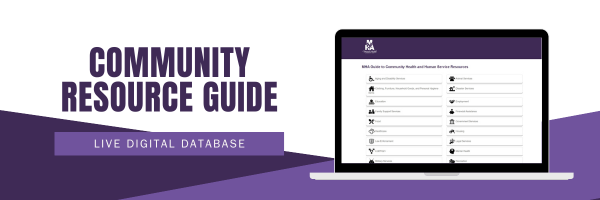Article originally published by The Frederick News-Post, October 31, 2024, by Gabrielle Lewis. For full article, please visit The Frederick News-Post website here.
The Mental Health Association of Frederick County has announced a new online database to make local community health and human service resources easier to find.
The MHA Guide to Community Health and Human Service Resources, available on the organization’s homepage at fcmha.org, has been in progress for about a year and a half, according to Suzi Borg, MHA’s director of crisis services.
This kind of guide has existed internally for the MHA’s Call Center for years. The database reflects that guide and makes that comprehensive collection of resources available to the public.
The database groups services and resources in Maryland into 22 main categories, including housing, financial assistance, substance abuse, health care and mental health.
Users can click on whichever category they need help with, and more specific subcategories will appear.
For example, under children and family support services, some subcategories include adoption, case/care management, parenting and holiday assistance.
After clicking on a subcategory, the database takes users to a webpage showing a list of relevant services and their locations on a map.
Clicking on a resource brings up another webpage with a description of the service, contact information, hours and other information about the service.
Users can also use a keyword search function, which lets them search for specific types of services and resources near a particular location.
The online guide also features contact information for MHA’s 24-hour Call Center, walk-in crisis care center and counseling services. If anyone has problems navigating the guide, Borg encourages them to call the Call Center for assistance at 301-662-2255.
Borg said that over the last several years, MHA has seen a need to publicize resources for residents.
The organization used to annually publish a printed Guide to Mental Health and Community Support Services, but stopped in 2020.
“People miss that resource, but the minute you put something in print, it’s outdated,” Borg said. “… This [database] gives us the ability to make immediate changes available to the public.”
Borg said the online guide is similar to the printed one, but it doesn’t have the same list of mental health professionals. Over time, she said, she hopes MHA can create a more comprehensive list of local providers on the database.
“This is still a work in progress,” she said. “We’re looking right now for any feedback that people might be able to provide to us about what isn’t working for them, or when it’s not easy to navigate.”

